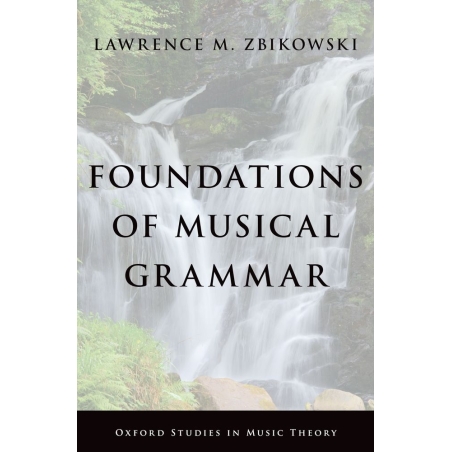Foundations of Musical Grammar makes a unique contribution to music theory by building on recent research in cognitive science and theoretical perspectives adopted from cognitive linguistics to present an account of the foundations of musical grammar. In presenting this account, it engages with music and the emotions, gesture, and social dance.
CONTENTS
Table of Contents
Origins:
Music and Language in Human Cultures
Foundations of Musical Grammar
Musical Grammar and Music Theory
Music and Analogy:
Analogy
Perceptual Symbol Systems, Embodied Knowledge, and Analogy
Sonic Analogs and Systems of Reference
Sonic Analogs for Dynamic Processes
Analogy and Imagination
Conclusion
Music and Emotion:
Recent Research on Emotion
Recent Research on Music and Emotion
Music, Emotions, and Sonic Analogs
Conclusion
Music and Gesture:
Gesture and Language
The Infrastructure of Human Communication
Music and Movement
Music and Gesture
Conclusion
Music and Dance:
Music and Dance in the Ancien Regime
Of Waltzes and Waltz Music
Conclusion: Music, Social Dance, and Musical Grammar
Music and Words:
Uber allen Gipfeln ist Ruh
Music, Words, and Song
Conclusion
Questions, Answers, Questions:
Sonic Analogs for Dynamic Processes
The Elements of Musical Grammar
Prospects for a Cognitive Grammar of Music
Works Cited
Index of Names
Index of Subjects
| Series | Oxford Studies in Music Theory |
|---|




